Click the buttons below to navigate between the different positions up for election.
The San Marcos Area Chamber of Commerce continues to provide information to voters on where candidates stand on key issues.
The Chamber asked all candidates the same six questions. Candidates were given two minutes to respond to each question and were not provided the questions ahead of time. Answers from the candidates are in-full and have not been edited.
City Council, Place 5 Candidates
A runoff election has been called for the Place 5 race between Mark Gleason and Omar Baca. During the Nov. 3 election, Gleason received 35.36% of votes while Baca received 32.05% of votes.
COVID-19
Read the candidates full answers below.
Would you support another shutdown if COVID-19 cases continue to climb?
“Well, so much of what we do as a city is follow state CDC, federal government and through County guidelines. We’re a little limited on what we can do as a city for shutdowns, of course, we can shut down the parks, but there are a lot of things that come as directives from the state and federal government, and those are always changing. I did support the park shutdowns, I thought we weren’t exactly sure what we would be dealing with case wise, especially when the students came back to town. We had seen a spike in cases, I thought it was, especially when all the neighboring communities did it too, I thought it was prudent of us, but so much of what we can do as a city is just follow state and federal guidelines, they’re the experts at this. Now we could have partnerships as a city with the university, health departments to try and get as much information as possible, but so much of what we need to do as a city is follow the experts. They’re the ones who say hey this is what we are seeing, this is getting out of hand again and so much of our power comes from the state and federal government. So, there is only so much we can do as a city when it comes to that except kind of follow the directives and look at the information that we’re given and then partner with our local regional partners the university and the health department, and make logical decisions on that. So that one if the cases get out of hand, yeah we may need to have to reclose some things. But so much of what we are going to do as a city is follow the information that is given to us by our state and federal partners.”
Would you support another shutdown if COVID-19 cases continue to climb?
“COVID has been a survey in leadership and I think we took a lot of notes from the very confusing federal leadership and it trickled down to us and our state leadership was on and off again and as a city, I felt that we weren’t as good as we could have been to help the process of getting it shut down here and bring our numbers down here in the first place. I think that it has evolved, we’ve talked about new vaccines and things of that nature and we are very hopeful of those things. But I’m really weary, I think we are seasoned veterans and we are all very tired of it and we are fatigued from it, but I think in the wholistic big picture if we spike again to the point where fatality numbers, the mortality numbers begin to come back up, we need to stop what we are doing and really have a community discipline response to that again, and that’s awful because we have been on-again, off-again and our half commitment to shutting it down, had we done it well to start within the beginning, we really could have affected the numbers out here. And so now we are piece milling it every way and our commitment was poor, and so we kind of made a mess of it, the one saving factor is that if these vaccines come out and the mortality numbers are impacted and we start to, it becomes like a common virus and people becoming infected, but they aren’t being impacted in the very deadly way that they have, I think that is a hopeful note, and hopefully, I don’t think we are going to return to normality, because I think we have been altered. We have had sentinel events in our history like 9/11 who have altered our personality and altered our culture and I think this year-long confusing battle has altered us for life. I’m not sure if we are going to return to normal, but hopefully, we get the vitality and community back and I’m okay with taking the measures necessary, but I think the most important number is the mortality rate because that’s where it hits and it hits in an uneven way to the poor and people of color and things of that nature. So we have to be, how we treat our and respond to our weakest members, says a lot about us as a community. And I think we are a compassionate community and we’re smart and responsible and I know people won’t like it if we have to do it, but that’s part of the hard decisions you are going to make as leadership. And so if those mortality rates and those dangers come up I absolutely say yes we will do what we have to do. Whether it’s flooding and turn around don’t drown, whether it’s trim your trees for wildfires, whether it’s wear your mask for COVID, whatever our next challenge is I think as a community we can rally to do it, and I think we can take better approaches as a local leadership because I think we took examples from the trickle-down leadership from above and that kind of hurt our mental, social, cultural response to it.”
Cite and Release Ordinance
Read the candidates full answers below.
Do you agree with the cite and release ordinance approved in June as an ordinance versus a resolution?
“I do not support the ordinance as it was written in June, I will support an ordinance for possession of marijuana. I think as a country that is kind of the way that we are going, and I think a lot of us, including in the law enforcement community don’t think want to see someone arrested for small amounts of marijuana. I will support an ordinance for marijuana possession for small amounts. But I will not support it for vandalism or property crimes. We will still have it as available as a state and law enforcement will still have it as a tool to use, I just don’t think it’s appropriate for us to make it mandatory. So, I will support a resolution for property crimes, for criminal mischief, for theft, but I will support an ordinance for marijuana possession. Having been a victim of several crimes that would have fallen under the cite and release ordinance, I’ve had my tires slashed, my bicycle was stolen when it was my only transportation back and forth to work after the floods. The compounding effect of that was dramatic, it wasn’t just that my bike was less than $300, it was the fact that now I needed to go rent a car. If you steal someone's lawnmower that’s less than $300 and now they’ve lost their ability to make a second income or do the things they need to do. So I have problems with that and I still want the officers to have the discretion to maybe make those decisions, but it should be a case by case basis with that. So I will support an ordinance for small amounts of marijuana possession. But I would like to see a resolution for property crimes, criminal mischief and those type of things,”
Do you agree with the cite and release ordinance approved in June as an ordinance versus a resolution?
“I do support it as an ordinance. I am very pro emergency services personnel and I feel that cite and release is one of the futures of evolution in emergency services and we have to weigh it, let it take its process, take good data, and see is this really good for our community, is it effective, but all the players involved have to have buy-in and I think as a resolution it’s soft and it doesn’t have teeth. To give it teeth is to say look, we are truly committed to this idea of evolving and advancing and so we must also be dependent on the fact that we have to take good data and bring all that good data back and measure, is cite and release effective, people around the state are already trying to employ, they are calling it the San Marcos model. And we have a lot of push back and kickback from people and that’s understandable, but to answer your question in the briefest form possible, as an ordinance I would definitely support that and I think resolution is too soft.”
Economic Development
Read the candidates full answers below.
Do you believe San Marcos is losing interest in economic development? What kind of companies would you target?
“Well, I hope they are not because it’s a vital part of our community and we can’t if we don’t have economic development we can’t bring good jobs if you can’t bring good jobs you can’t bring incomes up, and if you can’t bring incomes up it affects housing. So there’s so many things that we can do if we can bring, that’s why I supported the SMART terminal wholeheartedly, and I’m still glad that Katerra is coming to the community, it’s just not coming as the SMART terminal, and I still hope that plays out. I think it’s very, very important to bring jobs. Without jobs, it affects so much of the economy from the small businesses down, and the neighboring communities have done a very good job of trying to bring in industry and jobs whether it’s in technology or manufacturing or whatever we can do to try and bring up people income because it affects so much from property taxes to affordability, to keeping students in town after they graduate and so it’s beyond vital that the city work with the GSMP and the chamber and the state and regional partners to try and bring in whatever kind of good jobs we can do through the 380-agreement process and leverage what we can for the I-35 corridor through the railroad through the airport so that we can bring good jobs to the community.”
Do you believe San Marcos is losing interest in economic development? What kind of companies would you target?
“I think that, so, personally I think that we used to kind of be a leader in business recruiting. When I was in my Leadership San Marcos class, right in that aspect, you looked at the map of Texas and there was an industrial hub and there was one around Dallas and there was one in San Marcos, Texas and across the nation, there were other dots and San Marcos had that dot. And we were really good about bringing business in, well our competitors to the north and our competitors to the south everybody is getting real aggressive at it and getting better, and some of them have open spaces with which to work with bedroom communities to facilitate housing and things of that nature, I think to answer that question as sharply, and as acutely as possible, I think we’re not as shiny and polished as we used to be and aggressive as we used to be and I think we could do better. I would love to do better because the ones that we target are quality job bringers, I think San Marcos is a pearl in the sea. It’s a really wonderful place to live in and be in and that’s why we chose to be a part of this community 13 years ago. This love and affection for the community deserves investment and growth and the people of San Marcos deserve to grow and be able to stay here. And so bringing good jobs and bringing good business here is important to the wellbeing and health, not just our fiscal health, but maybe maintaining, and maybe even improve our quality of life that we relish so much here in San Marcos.”
Housing
Read the candidates full answers below.
Will you vote for or against housing built on empty or unused lots even when there is opposition from surrounding neighbors?
“One of the things that we do on planning and zoning is take things case by case, and that is what I have done on Planning and Zoning. I have supported some of the infill projects and some I have not. And it’s going to depend on location, traffic, parking implications, the layout, how big the lots are, and things like that, so yes, I have supported some and some I have not. Marlton Street is a great project, I thought that it worked out very well. Off of Bishop you have two single-family homes, they have entrances off different sides on different streets. And they look very, conform to the neighborhood, it fits the neighborhood character very well. I did not support a couple of the neighborhood density changes and these weren’t necessarily infill changes on Hopkins Street. Some of these projects are really going to have to be looked at case by case and I think that’s the appropriate thing to do. You know, an opposition is going to happen one way or another, you’re never going to make everyone happy when it comes to some of these decisions and that’s part of the thing about me being on Planning and Zoning, kind of preparing me for council. I’ve had to make these tough decisions and we take them case by case and that’s the appropriate thing to do.”
Will you vote for or against housing built on empty or unused lots even when there is opposition from surrounding neighbors?
“I am a big advocate for neighborhoods, so neighbors have to be heard and concerns have to be part of that recipe, so the question as a yes or no answer, it’s dependent on the atmosphere and the impact it would have on that neighborhood.”
Classifying Non-Profits as “Lobbyists”
Read the candidates full answers below.
Do you support classifying non-profits as "lobbyists?"
“No, because I think everybody should have a voice and organizations are just as important as individuals. Everybody brings a point of view to the table and has a perspective and as a community, those organizations bring a lot to the table and we need to listen and partner with organizations, whether it’s lobbying groups, what we would consider lobbying groups. Anything could almost be considered lobbying, and I think everyone should have a voice at the table including the Chamber, the GSMP, whether it’s groups from the Centro, Move Texas organizations from campus, everybody deserves to have a voice. I don’t think it’s necessary to do, because anybody could be considered a lobbyist if they are pushing one way or another for support or giving out information and I think it’s important for everybody’s voice to be heard.”
Do you support classifying non-profits as "lobbyists?"
“Because of what we have seen in our current environment, I would say that it’s okay to classify them as such because some of them are behaving as political influence within our community, and we’ve seen that. For me personally, one of the things that I want to do is log and make available for transparency those interactions with those kinds of groups because I think it’s important to be professional, candid, and transparent. People talk about transparency in politics and never really follow through so for me and my office would be to log and categorize those things because I think that’s important. Some offices keep those logs and when they keep those logs, it keeps malinfluence from coming to visit or even have those conversations because it’s in paper, it’s in writing and it’s available to the public. If they don’t have the candor to stand up and walk to you and be presentable to the whole community, which I would represent, they don’t deserve to be speaking in a malicious or predatory way in my office and try to buy or sway influence in a way that is not acceptable to the community.”
Innovation Initiatives
Read the candidates full answers below.
Do you support STAR Park and other similar innovation initiatives at Texas State? How will you leverage these organizations into positive outcomes for San Marcos?
“Absolutely I’ll support those initiatives, a STAR park is a very unique enterprise put on by the university, and it really might bring some very interesting industry and very good jobs and research to the community. I think it’s a great thing for the community, a great thing for the university. As far as leverage, we use the GSMP to work with the university to try and combine the resources that we have as a community with the university to try and bring technology, bio-industry, whatever we can utilize from the STAR park and utilize the university itself to bring jobs, bring technology and there’s a research tool to the university to bring a cooperative between a community and the university and maximize what they are doing out there. I think it’s a very neat thing.”
Do you support STAR Park and other similar innovation initiatives at Texas State? How will you leverage these organizations into positive outcomes for San Marcos?
“So STAR park and things of that nature, we have essentially a free talent service offering account and marketing and things of this nature, helping our, last time I was sitting here in this seat I talked about incubating our small and local businesses and these are aspects and tools that the taxpayers aren’t essentially paying city council for directly. But there’s a benefit for the university, it helps us build a relationship that’s really not as strong as it should be with the university, but organizations and initiatives like this are, they’re wonderful ideas and wonderful resources to local businesses I believe. I would love to see more of that in fact and employ and help as a councilperson help actually go and make those connections between those people who need and could benefit from them.”









